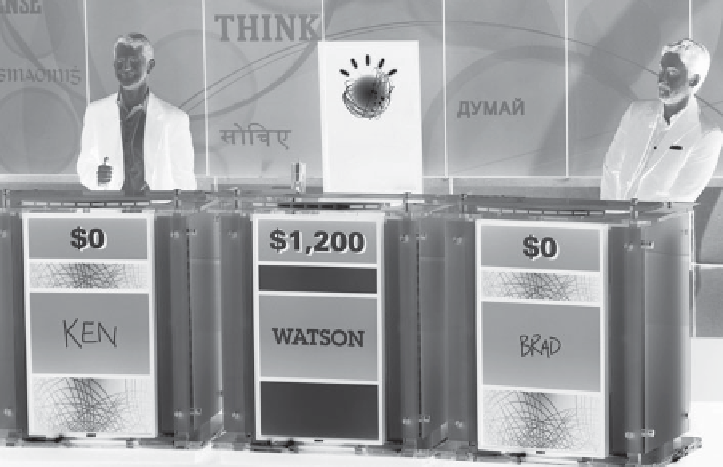Information Technology Reference
In-Depth Information
FIGURE 10.5
In 2011 an AI program named Watson running on an IBM supercomputer
trounced the two greatest (human)
Jeopardy!
champions: Ken Jennings and Brad Rutter.
(© AP photo/Seth Wenig)
our society. For this reason, Richard Epstein suggests there is an urgent need to discuss
ethical issues related to the creation of intelligent robots, before they become a reality
[23]. Here are some of the questions Epstein raises.
.
Is it wrong to create machines capable of making human labor obsolete?
.
Will humans become demoralized by the presence of vastly more intelligent robots?
If so, is it wrong to work on the development of such robots?
.
Is it morally acceptable to work on the development of an intelligent machine if we
cannot be sure that the machine's actions will be benevolent?
.
How will we ensure that intelligent robots will not be put to an evil purpose by a
malevolent human?
.
How will our notions of intellectual property change if computers become capable
of creative work?
.
How will our ideas about privacy have to change if legions of superfast computers
are analyzing the electronic records of our lives?
Michael LaChat notes, “Many look upon the outbreak of AI research with an uneasy
amusement, an amusement masking...aconsiderable disquiet. Perhaps it is the fear
that we might succeed, perhaps it is the fear that we might create a Frankenstein, or
perhaps it is the fear that we might become eclipsed, in a strange oedipal drama, by our
own creation” [24].

